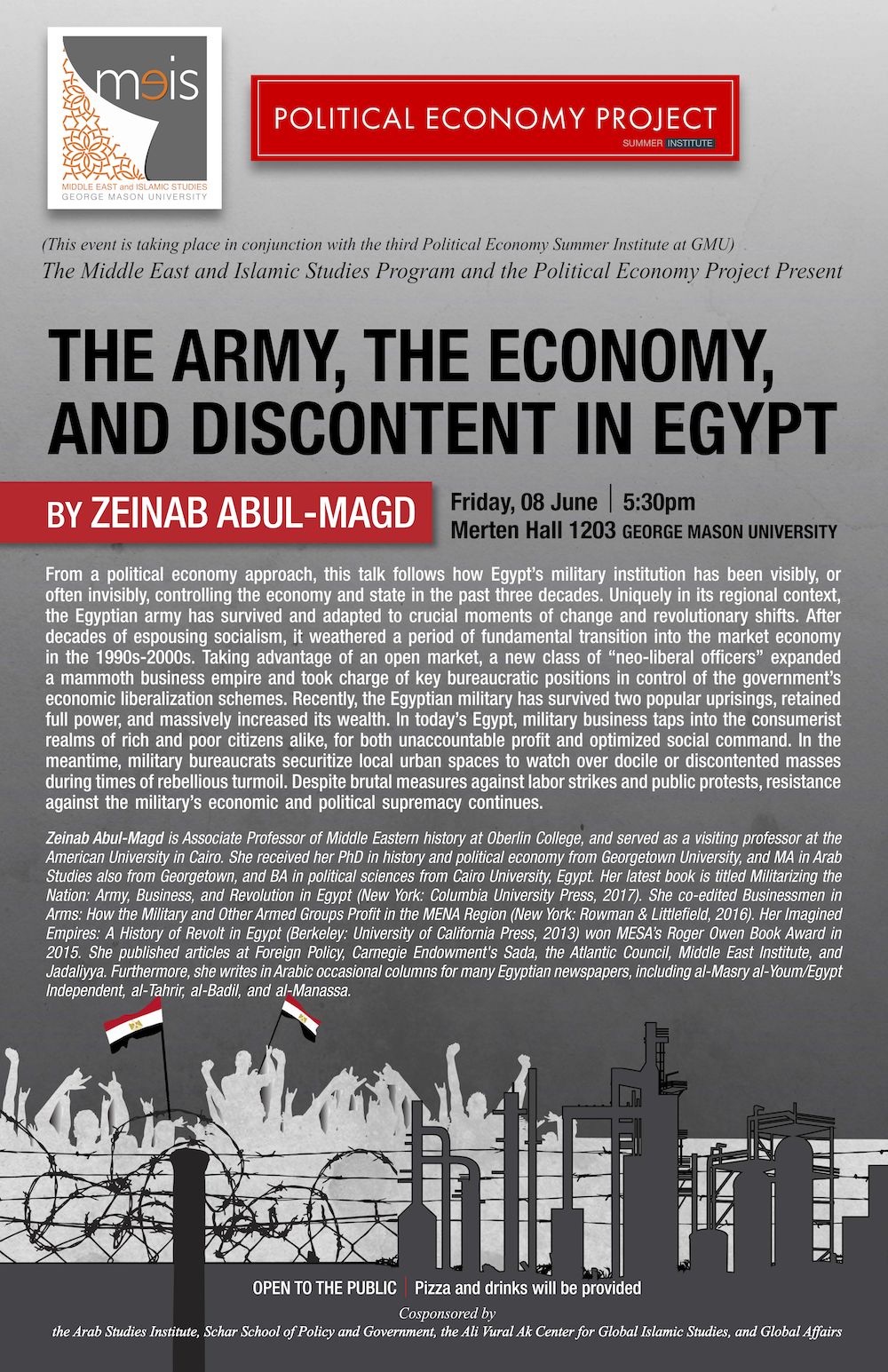T H E A R M Y, T H E E C O N O M Y,
& D I S C O N T E N T I N E G Y P T
Friday, 8 June 2018, 5:30 pm
Merten Hall 1203
George Mason University
Pizza and Drinks Provided
From a political economy approach, this talk follows how Egypt’s military institution has been visibly, or often invisibly, controlling the economy and state in the past three decades. Uniquely in its regional context, the Egyptian army has survived and adapted to crucial moments of change and revolutionary shifts. After decades of espousing socialism, it weathered a period of fundamental transition into the market economy in the 1990s-2000s. Taking advantage of an open market, a new class of “neo-liberal officers” expanded a mammoth business empire and took charge of key bureaucratic positions in control of the government’s economic liberalization schemes. Recently, the Egyptian military has survived two popular uprisings, retained full power, and massively increased its wealth. In today’s Egypt, military business taps into the consumerist realms of rich and poor citizens alike, for both unaccountable profit and optimized social command. In the meantime, military bureaucrats securitize local urban spaces to watch over docile or discontented masses during times of rebellious turmoil. Despite brutal measures against labor strikes and public protests, resistance against the military’s economic and political supremacy continues.
***

Zeinab Abul-Magd is Associate Professor of Middle Eastern history at Oberlin College, and served as a visiting professor at the American University in Cairo. She received her Ph.D. in history and political economy from Georgetown University, and MA in Arab Studies also from Georgetown, and BA in political sciences from Cairo University, Egypt. Her latest book is titled Militarizing the Nation: Army, Business, and Revolution in Egypt (New York: Columbia University Press, 2017). She co-edited Businessmen in Arms: How the Military and Other Armed Groups Profit in the MENA Region (New York: Rowman & Littlefield, 2016). Her Imagined Empires: A History of Revolt in Egypt (Berkeley: University of California Press, 2013) won MESA’s Roger Owen Book Award in 2015. She published articles at Foreign Policy, Carnegie Endowment's Sada, the Atlantic Council, Middle East Institute, and Jadaliyya. Furthermore, she writes in Arabic occasional columns for many Egyptian newspapers, including al-Masry al-Youm/Egypt Independent, al-Tahrir, al-Badil, and al-Manassa.
This event is co-sponsored by the Arab Studies Institute, Schar School for Public Policy, the Ali Vural Ak Center for Global Islamic Studies, and Global Affairs

